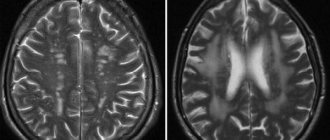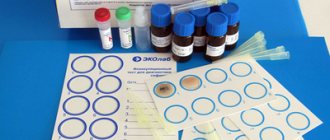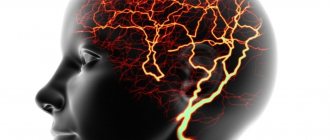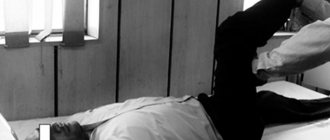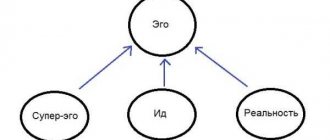Psychiatry is often “mystified”, as a result of which the treatment of mental illness seems to most to be something extremely extraordinary, unknown and complex. And very often this is exactly what happens: the process of treating psychiatric patients really does cause a lot of problems and difficulties.
A psychiatrist is the same doctor as a therapist, cardiologist, ENT specialist, etc.
Society has developed a very specific attitude towards psychiatry, and it is unfounded and even absurd. Treatment by a psychiatrist, unfortunately, is condemned by people, considered shameful and often hidden from family and friends.
It is important to understand that mental health therapy is a routine treatment for an unusual illness. Nowadays, there are not so many differences between the principles of treatment in psychiatry and, say, therapy (although some “unusual” procedures are still used).
A person should not be more afraid of a visit to a psychiatrist than a visit to a therapist, cardiologist or ENT specialist. This, in many ways, is the key to the mental health of the population. Let's look at what a consultation with a psychiatrist can be like using the example of obsessive-compulsive neurosis, the treatment of which is very important due to its wide distribution.
Causes of alcohol addiction
According to WHO statistics, Russia is in second place in the world in terms of the amount of alcohol consumed. The causes of alcoholism are heredity, social and psychological factors. A genetic predisposition is most often formed by drinking alcohol during pregnancy. The child is a passive alcoholic. His body lacks the gene responsible for processing ethanol.
Psychological and social factors include:
- availability of alcohol and its active promotion on television;
- reluctance to stand out among fellow drinkers;
- dissatisfaction with one's social status;
- diffidence;
- hard physical work, after which you need to relax.
Psychotherapeutic assistance
An essential component of treatment is psychological counseling. Regular meetings with a psychologist are aimed at helping the patient understand his illness and its causes, learn to get out of stressful conditions, overcome emotional problems, manage his thoughts and actions, and control behavior.
A course of psychotherapy usually lasts several months or more, and is prescribed individually, in a group of patients or relatives.
Signs and stages of development of alcoholism
Alcoholism is diagnosed when the following symptoms are present:
- no vomiting even after drinking a lot;
- binges for several days;
- the volume of alcohol is not controlled, a person can drink to the point of unconsciousness;
- hangover;
- elevated mood in connection with the upcoming feast;
- partial memory loss;
- withdrawal syndrome when stopping or reducing the consumption of ethyl alcohol, which manifests itself in a mental disorder.
There are four degrees of development of alcoholism. Each of them has its own characteristics. If at least one of them is detected, it is necessary to convince the patient to seek help from a narcologist as quickly as possible. With inaction, addiction quickly develops and enters a severe stage.
Initial (zero) stage
The disease is not diagnosed at this stage. Alcohol consumption is sporadic. A person drinks on a special occasion or with friends for company, rarely exceeding the permissible dose. The absence of alcohol does not cause discomfort. At this stage, you can break the bad habit on your own without consequences for physical and mental health.
First stage
Psychological dependence develops. At times there is an irresistible desire to drink. Relaxation and relaxation are associated with alcohol. A person does not perceive drunkenness as antisocial behavior and finds various excuses for drinking alcohol. Any event becomes an occasion for drinking. Tolerance to ethanol develops. Once an addict starts drinking, he cannot stop and does not control the dose of alcohol. A hangover appears, which is eliminated with a new portion of strong drink. The body's protective reaction in the form of vomiting disappears.
Second stage
The amount of alcohol consumed increases and reaches 1.5 liters of alcohol with a strength of 40 degrees. Taking ethanol is becoming a vital necessity. In its absence, the drunkard, in addition to psychological discomfort, feels physical. It manifests itself in headaches, tremors in the limbs and rapid heartbeat. Without alcohol, a person cannot function. When consuming a minimal amount of ethanol, self-control is lost, the addict behaves inappropriately and poses a threat to others. Mental disorders arise, hallucinations begin. Constant intoxication causes damage to organs and tissues. Depending on the body’s sensitivity to ethyl alcohol, the second stage lasts from 5 to 15 years.
Third stage
At the final stage, personality degradation occurs. An addict drinks alcohol daily. Tolerance decreases, intoxication occurs from a minimum dose of alcohol. Chronic diseases develop (liver cirrhosis, toxic hepatitis). Due to damage to the nervous system, seizures occur and coordination of movements is impaired. Alcoholic psychosis occurs. Most often it manifests itself in the form of delirium tremens. The condition is accompanied by anxiety, aggression and realistic hallucinations. In severe cases, a person, in the absence of medical assistance, falls into a coma and then dies.
Manifestations of obsessional neurosis
The most common manifestation of obsessional neurosis is fear, which is very difficult and sometimes almost impossible to overcome. Phobias make social contacts, work and all other aspects of life very difficult.
Another version of neurosis is, in fact, obsessive thoughts that a person cannot “drive” out of his head. These thoughts interfere with learning, concentration and greatly tire the patient. An important criterion: a person with obsessional neurosis never realizes his thoughts. The last type is compulsive. It manifests itself through obsessive movements and excessive ritualism.
Stages and methods of treating alcohol addiction
Treatment of alcoholism at Dr. Shorin’s center includes a set of therapeutic measures aimed at overcoming physical and psychological dependence on alcohol. The first consultation is free of charge. Specialists provide assistance and support not only to the addicted person, but also to his relatives. An experienced psychotherapist will tell you how to behave with an alcoholic and convince him to undergo therapy.
Addicts do not admit that they are sick and rarely seek help on their own. In such cases, a narcologist-psychotherapist makes a home visit. In a familiar environment, a person feels more comfortable and is more willing to make contact. The doctor conducts a conversation with the patient, during which he indirectly influences his subconscious in order to create motivation for treatment. In 90% of cases, the addict agrees to hospitalization and a full course of therapy.
Treatment consists of three mandatory stages:
- detoxification;
- elimination of physical and psychological dependence;
- rehabilitation.
How can we help?
| If you have discovered some of the described symptoms, this may indicate the development of a mental disorder. In this case, it is worth contacting a psychiatrist for diagnosis and initiation of timely treatment. In addition to face-to-face appointments , we offer a remote consultation service (online) , which is not inferior in quality to a personal meeting. Thus, you can receive qualified assistance from a high-level specialist, no matter where you are. |
Our clinic, near the Eastern Administrative District of Moscow, in Reutov, employs specialists who have extensive experience in treating mental disorders. We use the most modern and advanced techniques, guided by the principles of evidence-based medicine. Effective assistance and confidentiality of information constituting medical confidentiality are guaranteed.
Binge withdrawal and detoxification
Long-term alcohol intake is accompanied by severe intoxication. It manifests itself in the form of headache, nausea, rapid heartbeat and tremors of the limbs. This condition is called a hangover. A drunkard relieves unpleasant sensations with a new portion of alcohol. This is how binge drinking occurs.
If possible, it is necessary to limit the alcoholic's access to alcohol. Being in poor health, an addict easily agrees to call a doctor. The narcologist carries out withdrawal from binge drinking followed by detoxification. Cleaning is carried out using the infusion method. After a few hours, the patient comes to a sober state, his health improves.
Detoxification helps with ethanol poisoning, eliminates hangover syndrome and partially reduces the physical craving for alcohol. As a result, the influence of alcohol toxins on the brain stops. At this stage, sensitivity to beliefs increases, and the person, with the proper approach, agrees to get rid of the bad habit.
In an inpatient setting, a complete diagnosis is carried out to determine the patient’s condition and the degree of dependence. Based on the results of the examination, after treatment of concomitant diseases, one or more types of therapy are prescribed.
What is gambling addiction
If there is a gambling addiction, psychologists diagnose “gambling addiction” or “ludomania.” If we are talking about a pathological addiction to playing machines (slots), the term “gambling addiction” is used.
Depending on which games cause such addiction, there are four types of gambling addiction:
- Gambling addiction associated with computer games, regardless of their genre.
- Pathological addiction to commercial games - sports betting, betting, lottery.
- Gambling addiction, in which the player is addicted to gambling presented in virtual casinos - roulette, slot machines, cards, etc.
- Gambling addiction associated with speculation in the stock and foreign exchange markets. This type is very close to addiction caused by gambling.
Our center offers treatment for gambling addiction of all types. You can consult a doctor or psychologist before starting treatment for free.
Doesn't want to be treated?
We will help you find an approach to your loved one and convince them to seek treatment for addiction in your specific case.
- Help in persuasion
- Completely anonymous
- 24/7 psychological support
- For free
Coding
Coding is a deterrent therapy aimed at overcoming the physical craving for alcohol. It is carried out by oral, intravenous or subcutaneous administration of ethanol antagonists. Medicines based on two substances are used:
1 Naltrexone.
Neutralizes brain receptors that are responsible for euphoria after drinking alcohol. As a result, drinking ethanol has no effect. The patient refuses alcohol due to its uselessness;
2 Disulfiram.
Forms aversion to alcohol. The drug accumulates in the body and causes complete rejection of ethanol when taken. A person feels a sharp deterioration in health, which is expressed in the form of severe headache, vomiting, tachycardia and increased blood pressure. A persistent disgust and fear of drinking alcohol is formed. Medication adjustment neutralizes physical dependence and provides the sobriety necessary for further therapy.
The clinic also conducts coding using the method of the famous Professor Dovzhenko. This method includes elements of cognitive influence, neurolinguistic programming and light hypnosis. The method has no side effects and gives 100% results for up to 5 years.
Psychotherapy
It is the most effective way to overcome psychological addiction. Dr. Shorin’s clinic uses several modern psychotherapeutic techniques.
Cognitive therapy
This type of influence consists of suppressing the irrational beliefs of the addict. The main reasons for drinking alcohol are self-dissatisfaction, uncertainty and low self-esteem. A psychotherapist uses suggestion to help the addict replace negative thoughts with positive ones. Cognitive therapy aims to prevent relapses. The doctor determines the risks of returning to drinking alcohol and teaches the patient to avoid them.
Group therapy
Provides for psychotherapeutic sessions in a group of Alcoholics Anonymous. The absence of condemnation from fellow sufferers contributes to emancipation. During classes, patients share fears and problems and relearn social skills. Many people make new friends. The practice of mentoring has been introduced into group psychotherapy. The sessions are attended by former patients of the clinic who have completely gotten rid of their bad habit. They share their experience of overcoming addiction and how their lives have changed without alcohol. This provides additional support and motivation.
Hypnosis
Hypnosis uses the method of neurolinguistic programming. The psychotherapist influences the patient's subconscious in order to change his habits. The doctor instills information about the dangers of alcohol and encourages the patient to lead a sober lifestyle. Hypnosis is an adjuvant therapy and is effective in combination with other addiction treatment methods.
Obsessions
Intrusive thoughts vary from patient to patient. Currently, the following classification of obsessive thoughts is accepted:
- doubts;
- fears;
- contrasting obsessions.
Doubts are characterized by constant thoughts about some action that has already been completed. The patient doubts whether he closed the door, turned off the gas, or paid for the phone. The peculiarity of such thoughts is that they return again after rechecking. The patient does not calm down and may approach the already closed door many times a day. It is interesting that normally, such doubts can arise in everyone; the problem appears when they become disturbing, illogical and intrusive.
Contrasting obsessions are unpleasant thoughts that seem disgusting, unnatural, and blasphemous to the patient. The most common images are the fear of harming yourself or loved ones. Sometimes patients are afraid to express an offensive thought or say or do something immoral. A separate category of contrasting phobias are obsessive thoughts of blasphemous content - offensive to the ideals of the patient (his worldview, religious self-awareness) - a special version of obsessions, usually arising in believers, pious people, manifested in painful thoughts and ideas for the patient, offensive and indecent in relation to God , Mother of God, Saints (most clergy of various denominations can determine when a parishioner’s “wrong thoughts” are sinful thoughts, and when they are a symptom of a mental disorder, and send them to a doctor and even bless them for treatment by a psychiatrist).
Another category is pollution obsessions. They are so widespread that they have received a special name. Fear of pollution is called mysophobia. The patient is afraid of getting infected, afraid of germs. To overcome his fear, he can wash his hands every hour and clean several times a day.
If obsessions become more complex, the patient begins to come up with actions and rituals aimed at calming down. After such a ritual he feels better. In the case of fear of contamination, this may be a fear of specific objects and places, or washing hands in a strictly defined sequence.
Rehabilitation
Rehabilitation is the most important stage in overcoming addiction. Returning to normal life and the same social circle can lead to a relapse. To prevent a breakdown, mandatory rehabilitation is carried out. It consists of supportive psychotherapy, occupational therapy and creative activities.
The addict prepares to adapt to society and re-learns social skills. In a rehabilitation center you can acquire an interesting hobby that will bring pleasure, occupy your leisure time and relieve you of thoughts about drinking. If desired, patients can gain new professional skills and further assistance in finding employment.
How to get there
Social
Perhaps these are the most common reasons that lead to the development of depression. The following factors negatively affect the human psyche:
- Acute and chronic stress. For example, the loss of a loved one, divorce, betrayal, violence.
- High work loads.
- Job loss and change.
- Retirement.
Older people do not adapt well to changes in life. Therefore, any change, even positive, can lead to the development of stress or depression.
Treatment of child and adolescent alcoholism
If you contact a specialist in a timely manner, teenage alcoholism is easily treatable. This is due to mental and physical characteristics. The young body recovers easily with supportive drug therapy. Teenagers are highly suggestible, so in 99% of cases psychotherapy has a positive effect and completely eliminates a bad habit. Treatment is carried out in agreement with the parents. They are required to be present during procedures and live together in the ward. A special rehabilitation program has been developed for teenagers with the opportunity to receive education abroad.
Benefits of inpatient treatment
Outpatient treatment of alcoholism is effective only at an early stage if the patient has a conscious desire to get rid of the bad habit and sufficient willpower. In the later stages of the disease, a person is not able to cope with the problem on his own, even with a firm decision to end his addiction. Overcoming addiction should be under the supervision of a specialist.
At Dr. Shorin’s clinic, alcoholism treatment is carried out using modern effective techniques. The center’s specialists have over 15 years of experience and regularly improve their skills. Inpatient therapy has many advantages:
- confidentiality. The patient is not registered, information about him is not transmitted to the place of work or to third parties;
- comfortable living conditions that resemble a sanatorium;
- 24-hour supervision by specialists and immediate assistance in case of complications;
- lack of access to alcohol, which completely eliminates relapse;
- the method of getting rid of alcohol addiction is selected personally, taking into account the wishes of the patient, his relatives and general condition;
- the availability of individual therapeutic programs for patients over 60 years of age for whom standard regimens are contraindicated;
- constant communication between the doctor and the patient’s relatives;
- The cost of therapy includes accommodation in the clinic, three meals a day, all necessary procedures and medications;
- rehabilitation in a center at the clinic or abroad;
- post-treatment lifelong support.
Since the clinic's existence, more than 5,000 people have undergone treatment for alcoholism. 94% of patients completely stopped drinking alcohol and are in remission. Many continue to attend supportive therapy sessions, and some act as mentors in rehabilitation groups and help patients in the fight against the disease.
Don’t be ashamed of a bad habit or afraid of shame. Alcoholism is a serious disease that requires immediate treatment, a professional approach and the joint efforts of doctors, the addict and his relatives.
Examples of obsessional neurosis
It is very easy to explain the essence of this phenomenon with examples. Let's say you believe that you shouldn't look in the mirror before leaving the house. However, if you accidentally look in the mirror, you will still leave the house without giving it much importance.
Or, for example, a black cat on the road will not force you to reschedule your business: you may be a little worried, but you will soon forget about it. A person with compulsive obsessions, looking in the mirror, will bolt the door and stay at home all day, and, having met a black cat, go to the pharmacy for sedatives.
As you can see, obsessional neurosis makes the patient’s life very difficult. This means that we can say confidently and definitely: this disease definitely needs treatment, and the treatment must be professional and complete.
